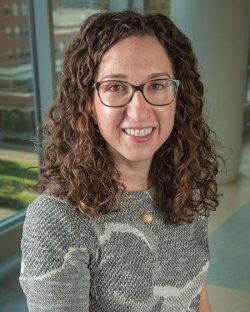Nearly half of all Catholic and other religious hospitals fail to comply with required abortion and family planning training for obstetrics and gynecology residents, putting women at potential risk, according to a new study from the University of Colorado Anschutz Medical Campus.
The study was published online this month in the American Journal of Obstetrics & Gynecology.
While the Catholic Church’s opposition to abortion is well known, certain kinds of family planning training are required for all Ob/Gyn doctors in residency. This has been true since 1996 when the Accreditation Council for Graduate and Medical Education (ACGME) recognized that abortion and family planning are essential parts of Ob/Gyn residency programs.
Yet the study shows that many religious hospitals neglect that training, putting their residents behind peers at other hospitals. One fifth of the programs surveyed said they didn’t believe all of their residents would complete the required 20 D&Cs (dilation & curettage) before graduation, suggesting possible limitations to their miscarriage training.
 |
| Maryam Guiahi, MD |
“These residents are clearly not getting sufficient training and then going into other settings where this kind of experience is necessary to care for their patients,” said the study’s lead author Maryam Guiahi, MD, associate professor of obstetrics and gynecology at the University of Colorado School of Medicine. “Some of them need a catch-up period.”
The researchers identified 30 of 278 accredited 2017-2018 programs where at least 70% of resident time is spent in faith-based hospitals that restrict family planning services. These sites account for 11% of all Ob/Gyn training programs. Educational leaders at these programs were asked about education and family planning training. Twenty-five programs responded – an 83% response rate – of which 76% were Catholic hospitals.
While they all reported adequate contraceptive training, with 47% of Catholic hospitals relying on off-site locations, some of the Catholic programs expressed concerns for training in copper IUDs as the Church views this method as an abortifacient despite competing evidence. Those from Catholic hospitals most commonly expressed concern about inadequate training in postpartum tubal ligations. About half of the hospitals offered abortion training as part of the curriculum as required by ACGME, 32% offered residents the chance to arrange training and 12% did not offer it at all. Most relied on off-site collaborations.
Five Catholic programs reported that their residents did not meet the requirement of 20 D&Cs. One third reported being cited by the Residency Review Committee for their lack of adequate family planning training. Almost half (47%) reported the abortion training they provided to their residents was “poor.”
“Even though many Catholic and other faith-based hospitals have developed strategies to respond to institutional restrictions,” Guiahi said, “the deficiencies are ongoing.”
Guiahi believes the Obstetrics and Gynecology Residency Review Committee may have to consider better measures to flag inadequate family planning training, especially at Catholic sites. These would include training in the placement of IUDs, postpartum sterilizations and improved abortion training assessments.
“If adequate training is not ensured,” Guiahi said, “the harm will ultimately fall on the women who seek out these physicians when they need these common reproductive services.”




